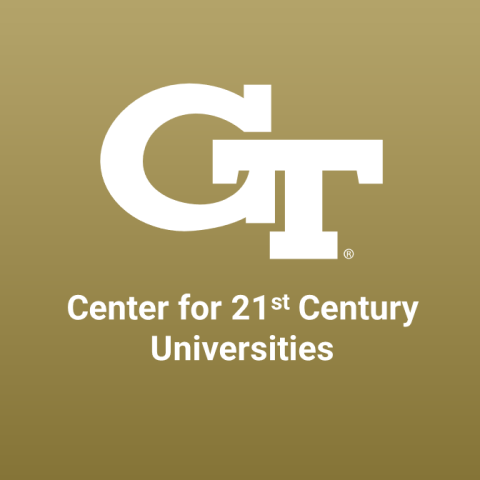
To improve the admission process, get faculty involved
Faculty collaboration with the undergraduate admission team can improve class participation, retention rates, course matches and funding yield – and help reduce misinformation about the process and decisions
You may also like
Popular resources
“What do you think about incorporating faculty into your holistic admission review process?”
This was the question our provost posed in a meeting about a decade ago. At best I was hesitant, but a more suitable description would be pessimistic. First-year applications were consistently increasing by over more than 10 per cent annually, our staff size was stagnant, and the unforgiving timeline of college admission seemed to squeeze more tightly each year. Adding a time-intensive layer, coordinating around faculty teaching and research schedules, and navigating the inevitably convoluted logistics of system access were just a few of the barriers and flags that went through my head.
- Pay it forward: how to help students secure financial aid
- Universities must do better at bridging the gap between diversity and belonging
- Are STEM admissions processes hindering our diversity efforts?
Quickly, it became clear, however, that while he had phrased this concept as a question, it was a directive – one I am now incredibly thankful he pushed. Over the past 10 years, faculty collaboration with our undergraduate admission team has brought innumerable benefits.
Admission file review
In order to find faculty members who would be interested and willing to assist, I approached the associate deans in each of our six colleges. This invitation and specific desire to partner was well received in all cases, and over time each college has refined exactly which of their faculty are most valuable in the student selection process. Over time faculty members have been invaluable in helping refine and augment our applicant review process. While admission teams use macro data on student performance (including GPA, retention and graduation rates), faculty bring insight from the classroom that not only assists in making granular decisions on individual students but also allows admission counsellors and readers to extrapolate from that input.
As an example, engineering faculty conveyed a desire to see international students (who boasted extremely strong academic preparation) more fully participate in classroom discussions. After understanding the problem, reviewing and vetting possible solutions, and several iterations and expansions, we now provide the opportunity for any non-native English speaker to submit an unscripted interview via InitialView.
During that same time frame, our international applicant pool has grown, yield has improved, student success metrics (GPA/retention rates) are at institute record highs, and faculty report a much higher level of satisfaction with a spirited academic exchange from their students.
Similarly, conversations in committee with our College of Design faculty made it clear they wanted to receive and review a student’s portfolio, in addition to the standard application, transcripts and test scores. Using Slate we integrated portfolios into our process and review discussions, an enhancement that has helped us grow our programmes in that college and identify best-match students.
Additionally, those discussions have helped our admission team better articulate to prospective students, parents and high-school counsellors exactly what differentiates our programmes from those at other institutions, and what qualities, background or other attributes make a good fit for these particular majors.
Admission IQ, advocacy and access
While initially we brought faculty into the admission committee room to help make the best possible decisions on applicants, the benefit has been a two-way street.
One of my goals as assistant vice-provost for enrolment management and executive director of undergraduate admission has been to raise the campus “admission IQ”. In other words, we want to ensure our campus community is clear on enrolment goals, the admission process, and the reality and rationale of our timeline.
To this end, we host quarterly campus partner meetings, send monthly emails to key faculty and staff on campus, and write regular articles for our campus e-news. Despite multiple mediums, rumours and misinformation persist that admission “only uses numbers to make admission decisions” or is biased against certain colleges or majors on campus. Thankfully, we have found that faculty who participate in our review process are incredibly effective at conveying the reality of our efforts, and serve as effective emissaries and advocates for admissions in rooms and meetings around campus where enrolment staff are often absent.
Faculty members, school chairs and associate deans who have participated in admission file review have also proved to be some of our most fierce advocates when it comes to petitioning for resources.
All universities want to see their yield increase, and Georgia Tech is no different. One of our greatest weaknesses when it comes to winning students versus our competition is financial aid and scholarships. Many of our overlap institutions are ranked higher than us and meet 100 per cent of demonstrated need. Over the years, we have made the argument for more scholarships and aid dollars via presentations, memos, graphs, charts and white papers. But nothing has been as effective at moving the needle on the creation of college-based scholarships as faculty members who have seen students they had a hand (and voice) in admitting ultimately decline our offer. Their personal connection and investment in the process, rather than simply being “handed” students at the end, has led faculty to help champion the creation of multiple dean’s scholarships and other financial initiatives at Georgia Tech. Ultimately, these initiatives allow us to offer better financial packages to admitted students, and increase yield in these academic areas.
As the value of higher education comes under unprecedented scrutiny, colleges and universities must differentiate themselves and their programmes more than ever. The truth is admission staff are generalists; they know a little about many aspects of their institution. Ultimately, an effective admission team is one that can connect prospective students, applicants or admitted students to the right person or department on campus. Again, this is where faculty prove to be vital partners. Inviting faculty into our process has strengthened our collaboration and access to experts. When we need a speaker for an open-house programme; when we are looking for a faculty member in a particular subject area to feature on social media; when we are putting together a panel to speak with visiting high-school counsellors or local principals, faculty champions are either willing volunteers or helpful conduits to the right colleague in their department.
What do you think about incorporating faculty into your holistic admission review process?
Over the past decade, my position on this question has shifted from not seeing how we could make it happen to not seeing how we could do it without them. In the years ahead, I’m convinced that, more than ever, faculty must be an integral part of the admission process. Clearly, each institution will need to determine exactly what role or what portion of the process makes sense for their school, but whether you are an admission leader or faculty member, I would implore you to re-ask or re-examine this question as we start 2023.
Rick Clark is assistant vice-provost for enrolment management and executive director for undergraduate admission at the Georgia Institute of Technology.
If you found this interesting and want advice and insight from academics and university staff delivered direct to your inbox each week, sign up for the THE Campus newsletter.




